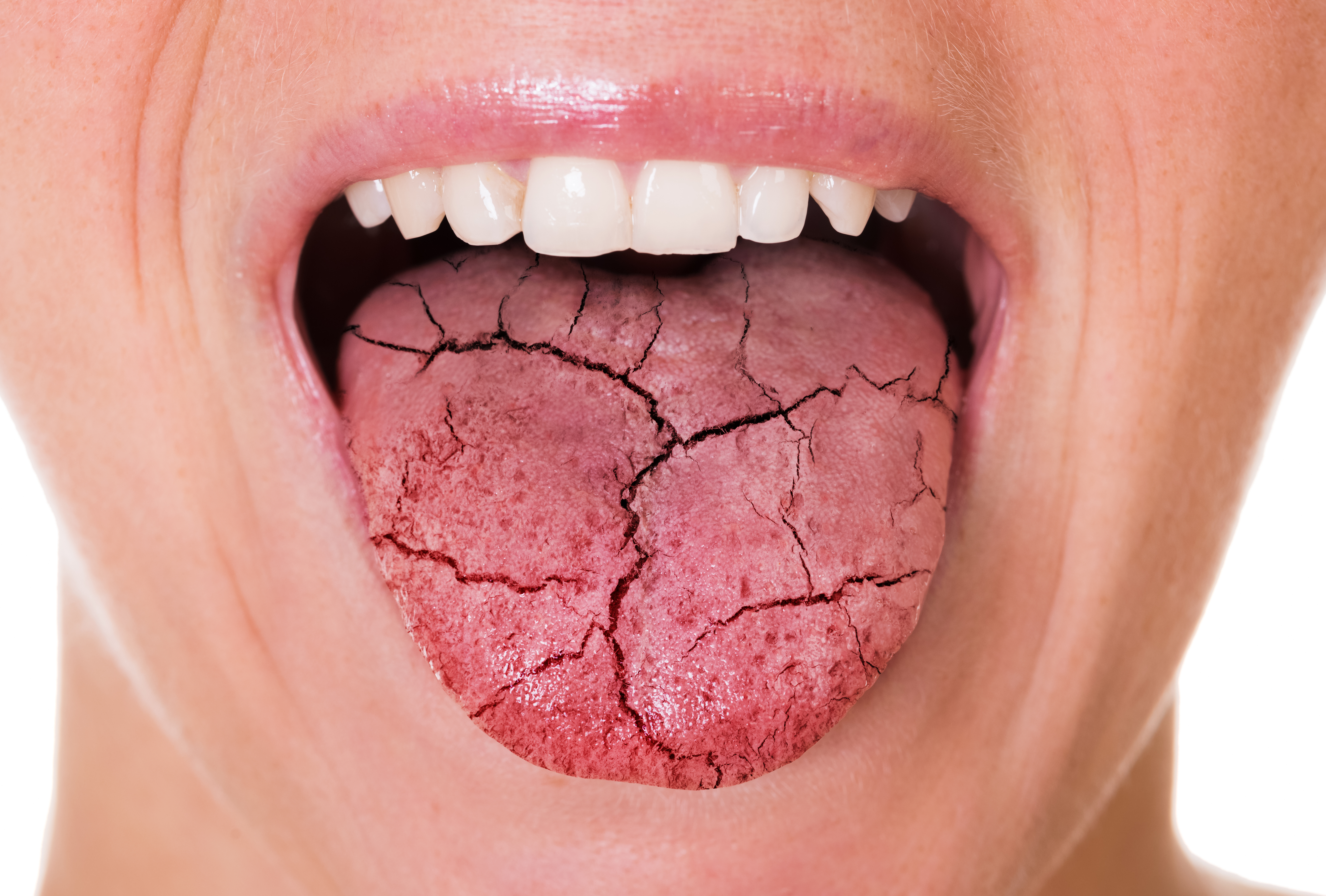All About Dry Mouth

Dry mouth is a condition in which a person is unable to produce enough saliva to keep their mouth hydrated. Commonly called cottonmouth, pasties, or xerostomia, this condition is treatable. In this article, we will discuss the condition, its prevention, and required care, which includes dental cleaning.
What is dry mouth
A dry mouth is not a fleeting or temporary condition. You can feel your mouth dry up when you are stressed and would want to drink more water. This is not a dry mouth disease. People who suffer from xerostomia have their mouths dry most of the time. This happens when your body fails to produce saliva in the required quantity. It can be diagnosed by your dentist by conducting some special tests like a biopsy, a sialography, or a sialometry.
The saliva in your mouth helps lubricate the food while chewing, making it easier for you to swallow. It also keeps the mouth comfortably moist, helps in killing germs, and neutralizes acid levels. Saliva is produced in the salivary glands. Saliva is secreted into the mouth by small ducts.
A dry mouth can be caused due to several reasons. It includes over-the-counter medicines like decongestants, muscle relaxers, anti-diarrheal tablets, high blood pressure medicines, and antihistamines. Excessive tobacco use, cancer treatments, anxiety disorders, AIDS, Parkinson’s, Alzheimer’s, unmanaged diabetes, or dehydration could also lead to dry mouth.
Symptoms of dry mouth may feel like sore throat, sticky saliva, tongue pain, oral thrush, taste disorders, bad breath, cracking of cheeks, and splitting on the corners of your mouth.
When a dry mouth goes too far
Dry mouth conditions can bring about many complications. Contact your dentist immediately if you notice any dry mouth symptoms. Short-term issues of xerostomia are bad breath, dry lips, sore mouth, difficulty swallowing, lack of taste, and recurring infections. However, dry mouth can lead to excessive plaque build-up, gum diseases, tooth decay, and permanent tooth loss if left untreated.
Prevention and care
Dry mouth condition, if occurring naturally, is preventable and curable. You can start by sipping water regularly. You get mobile applications that can alert you to drink water. Download that and set the alarms at intervals of every half an hour to remind you to sip water. You can go for a dental cleaning to remove plaque and tartar deposits.
Suck on sugarless candies or chewing gum to facilitate the production of saliva. Avoid alcohol-based mouthwashes, reduce caffeine intake, and stop chewing or smoking tobacco. All these habits lead to dehydration of the mouth and will deteriorate your dry mouth condition.
Add a humidifier in your room so that the humidity levels stay high. Make a conscious effort to breathe through your nose and not your mouth. If you are diagnosed with a dry mouth condition, seek immediate advice from your dentist and put a treatment plan in place. You can start using prescription toothpaste that is specially formulated to combat xerostomia.
Maintaining a disciplined oral care routine, scheduling regular dental cleaning appointments, and following a balanced diet will help you manage dry mouth issues. Make sure to change medications quickly if dry mouth is a side effect. You can also use moisturizing mouthwash to keep your mouth lubricated.
